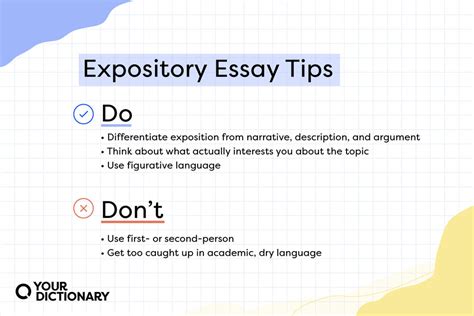Using the first-person perspective in academic writing has long been a subject of debate. While some instructors and style guides strictly prohibit the use of “I,” others allow it in certain contexts. This article delves into the various aspects of using “I” in essays, exploring both the potential benefits and drawbacks.

Benefits of Using “I” in Essays
-
Personal Connection: Using “I” can establish a personal connection with the reader, fostering a sense of relatability and authenticity. This can be particularly effective when sharing personal experiences or insights that support your argument.
-
Emphasis and Ownership: Employing “I” allows you to emphasize your perspective and take ownership of your ideas. It conveys that you have carefully considered and stand behind your opinions.
-
Reflective Writing: In reflective essays, using “I” is essential for expressing your thoughts, feelings, and experiences. It facilitates self-reflection and allows you to draw connections between your personal journey and the topic at hand.
Drawbacks of Using “I” in Essays
-
Informality and Bias: Excessive use of “I” can make your writing sound informal and subjective. It may also introduce personal bias, potentially undermining the objectivity that is often expected in academic writing.
-
Lack of Objectivity: Using “I” can create a sense of detachment between the writer and the subject matter. It may suggest that your opinions are more important than established facts or expert perspectives.
-
Stylistic Redundancy: Repeated use of “I” can become monotonous and distracting, making your writing less engaging for the reader.
Guidelines for Using “I” in Essays
If your instructor permits the use of “I” in essays, it is essential to do so judiciously and appropriately. Consider these guidelines:
- Use “I” sparingly: Limit the use of “I” to situations where it is necessary to convey your perspective or share personal experiences that support your argument.
- Use “I” purposefully: Ensure that each instance of “I” serves a specific purpose and enhances the clarity or impact of your writing.
- Maintain objectivity: While using “I,” strive to maintain an objective tone and acknowledge alternative perspectives. Avoid making sweeping generalizations or presenting your opinions as absolute truths.
- Consider your audience: Be mindful of your intended audience and the level of formality expected in your writing. If unsure, err on the side of caution and avoid using “I” unnecessarily.
Alternative Strategies for Expressing Your Perspective
If you prefer not to use “I” in your essays, consider these alternative strategies:
- Use “One” or “We”: Use “one” or “we” to express your perspective without explicitly using “I.” This can create a more inclusive tone and avoid potential bias.
- Use Passive Voice: Rewrite sentences in the passive voice to remove the need for a personal subject. However, avoid excessive use of the passive voice, as it can make your writing sound distant and impersonal.
- Provide Specific Evidence: Instead of using “I believe,” provide specific evidence and reasoning to support your claims. This demonstrates your knowledge and critical thinking skills.
Conclusion
The use of “I” in essays remains a topic of ongoing debate. While it can be an effective tool for establishing personal connections, emphasizing perspectives, and engaging in reflective writing, it must be used judiciously to avoid informality, bias, and stylistic redundancy. By carefully considering the guidelines and alternative strategies discussed in this article, you can effectively articulate your thoughts and ideas in academic essays, regardless of your personal writing style.
